Synbio labs in germany
German Association for Synthetic Biology (GASB)
Synthetic Biology Research in Germany
Here you can find a list of labs working in the field of Synthetic Biology within Germany. In case your lab is not listed, feel free to get in touch with us and we will also provide your information here!
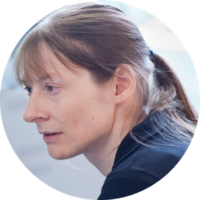
Prof. Dr. Anke Becker
LOEWE Center for Synthetic Microbiology, Comparative Genomics, Hans-Meerwein-Straße 6, 35032 Marburg, Germany
Anke Becker is Managing Director of the LOEWE Center for Synthetic Microbiology (SYNMIKRO), head of the Comparative Genomics research group, and Professor for Microbiology at the Philipps-Universität Marburg. Her current research centers on bacterial genome architectures and the functional basis and evolution of bacteria-host interactions. Synthetic biology concepts and tools are applied and developed to facilitate megabase scale-DNA assembly and to re-engineer bacterial genomes.
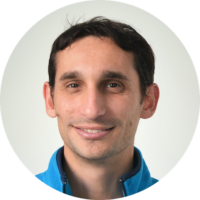
Prof. Dr. Chase Beisel
Helmholtz Institute for RNA-based Infection Research, Josef-Schneider-Str. / Bau D15, 97080 Würzburg, Germany
In the RNA Synthetic Biology group, we are excited about working at the interface between CRISPR biology and technologies. CRISPR represents highly diverse adaptive immune systems in bacteria and archaea whose RNA-directed nucleases have become the basis of revolutionary genome-editing technologies. My group explores the functional diversity of these immune systems and the various factors that drove their evolution. We also seek to translate these new insights into the next generation of CRISPR-based tools. In turn, we aim to use these tools to enhance the study, diagnosis, and treatment of infectious disease.
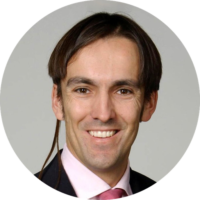
Prof. Dr. Lars Blank
Institute of Applied Microbiology, Worringer Weg 1, 52056 Aachen, Germany
The chair of Applied Microbiology focuses in his research on fundamental and applied aspects of microbial metabolism. Of specific interest is the interaction between the metabolic network and the introduced genetic and environmental perturbations. The research on in silico/in vivo metabolic network operation is aimed at a deeper understanding of cell function, with the ultimate goal of rational cell engineering.
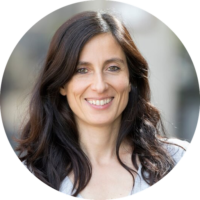
Prof. Dr. Barbara Di Ventura
Molecular and Cellular Engineering Group, BIOSS and Institute of Biology II, University of Freiburg, Schänzlestraße 1, 79104 Freiburg, Germany
In the Molecular and Cellular Engineering group we are interested in understanding the mechanisms used by cells to control processes in space and time using an interdisciplinary approach that combines molecular and cellular biology with synthetic biology and mathematical modeling.
We especially focus on optogenetics, that is, the use of light to externally control protein function and localization in individual living cells. On the one hand, we aim at developing novel optogenetic tools and biological methods that can profit the scientific community and, on the other hand, we aim at applying them to answer biological questions, such as how transcription factor dynamics are decoded in mammalian cells.
We are also interested in inteins, fascinating proteins that excise themselves out of host proteins reconnecting the flanking polypeptides with a peptide bond.
Finally, we are interested in the Min system, an extremely dynamical protein machinery that is used by bacterial cells to regulate septum placement. Lately, we discovered a role for the Min system in chromosome segregation in Escherichia coli and currently investigate the molecular mechanisms behind this exciting function using, among others, the synthetic biology approach.
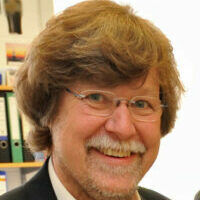
Prof. Dr. Stefan Dübel
Technische Universität Braunschweig, Institute of Biochemistry, Biotechnology and Bioinformatics, Spielmannstr. 7, 38106 Braunschweig , Germany
The Department of Biotechnology of the Institute for Biochemistry, Biotechnology and Bioinformatics at Braunschweig University covers a broad range of fundamental and applied research topics centered on discovery and molecular engineering of recombinant human antibodies and in vitro evolution. First, antibodies are discovered from our billion-clone libraries by recombinant methods. Using the power of in vitro display technologies, antibodies can be generated with pre-defined biochemical properties and to targets not amenable to animal-based antibody generation. But this is just the start: in analogy to the engineering of machines, antibodies and other protein domains are designed, assembled at the molecular level, tuned and adapted to achieve specific functions in biological systems or technical applications.
This allowed us to contribute to infection biology, cancer research, diagnostic test development, intrabody application, developmental biology, biomarker and drug discovery, synthetic biology, biochemical engineering and process development. A substantial list of successful technology transfers proves the significance of our research for society, by avoiding animal experiments and providing new ways to develop designer medications of the 21st century as well as antibodies tailored to machines.
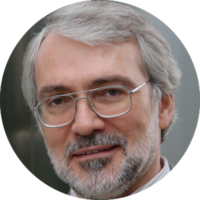
Prof. Dr. Peter Dürre
Universität Ulm, Institut für Mikrobiologie und Biotechnologie, Albert-Einstein-Allee 11,89081 Ulm , Germany
Syngas (CO/H2 mixtures) and CO2/H2 mixtures, especially from waste gas streams or biomass conversion, can play a major role in biotechnological production processes, combining the advantage of avoiding substrates competing with nutrition (such as starch or sugar) or high crude oil prices (if products are made by chemical synthesis) with climate improvement by reducing greenhouse gases. Metabolic engineering of autotrophic acetogens for production of a number of platform chemicals from gases is performed.
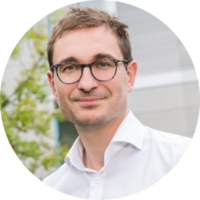
Prof. Dr. Tobias J. Erb
Director of the Department of Biochemistry and Synthetic Metabolism, Max Planck Institute for Terrestrial Microbiology & Center for Synthetic Microbiology, Karl-von-Frisch-Str. 10, 35043 Marburg, Germany
Research in our lab centers on the discovery and design of novel enzymes and metabolic pathways, as well as their transplantation and evolution in natural and artificial cells. One example is the design of synthetic pathways for the capture and conversion of the greenhouse gas CO2 that are more efficient than the photosynthesis of plants and algae. Our ultimate goal is to transform biology from an analytical-descriptive approach into a synthetic-constructive discipline that will allow us to design novel solutions for human needs, for instance an increased photosynthesis productivity or the development of synthetic chloroplasts and artificial leaves to harness CO2 as a sustainable carbon source of the future.
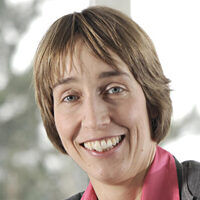
Prof. Dr. Sibylle Gaisser
Ansbach University of Applied Sciences, Department Engineering, Industrial Biotechnology, Residenzstr. 8, 91522 Ansbach, Germany
Ansbach University of Applied Sciences offers with its three faculties engineering, media and economics a platform for interdisciplinary research in a number of cutting edge technologies. In industrial biotechnology both classical biotechnological and molecular research is combined with the the analysis of socio-economic questions, risk assessment and public perception of new technologies. Among them are synthetic biology and diagnostics. In collaboration with the media department publication activities and new approaches of knowledge transfer are being developed.
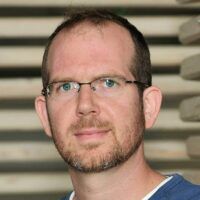
Prof. Dr. Jörg S. Hartig
Department of Chemistry , University of Konstanz, 78457 Konstanz, Germany
The Hartig group is developing artificial genetic switches based on ribozyme catalysis. For this purpose a self-cleaving RNA motif is augmented with an aptamer domain responsible for ligand binding. Engineered, artificial riboswitches have the advantage of allowing conditional gene expression without the need for regulatory proteins. Apart from this topic, the Hartig group is interested in discovering natural post-transcriptional mechanisms of genetic control and in characterizing novel metabolic pathways in bacteria.
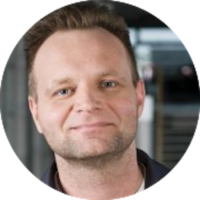
Dr.-Ing. Steffen Klamt
Analysis and Redesign of Biological Networks, Max Planck Institute for Dynamics of Complex Technical Systems, Magdeburg, Germany
Our group develops and applies (Systems Biology) tools and methods for the model-driven analysis, inference, and targeted modification of cellular networks. One particular focus of our research is computational methods for (systems) metabolic engineering and computer-aided design of microbial cell factories.
As one major outcome of these efforts, we have been developing CellNetAnalyzer, a comprehensive MATLAB package with graphical user interface providing, among others, numerous algorithms for the in silico analysis and computational design of metabolic networks. We apply these methods and tools in realistic applications, e.g., for the model-driven construction of E. coli strains for high-yield itaconic acid production. Furthermore, recent efforts address the use of synthetic regulatory circuits to optimize the productivity of microbial production processes.
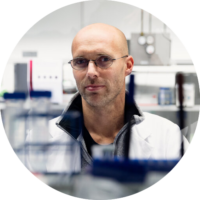
Prof. Dr. Heinz Koeppl
Bioinspired Communication Systems, Centre for Synthetic Biology, TU Darmstadt, Rundeturmstr.12, S3|19 1.1, 64283 Darmstadt
Our group contributes computational methodology to overcome the trial-and-error approach and to ultimately turn synthetic circuit design into a rational bottom-up process that heavily relies on computational analysis before any actual biomolecular implementation is considered. In order to achieve this goal, we develop biophysical and statistical models of biomolecular contexts, devise new statistical inference (calibration) methods that can deliver accurate characterization of circuits by making use of cutting-edge single-cell experimental data, experimentally build transcriptional and translational circuits in vivo and in cell-free systems in order to validate and bring to life the above theoretical investigations.
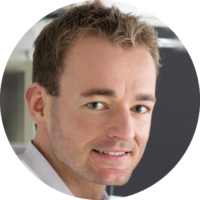
Prof. Dr. Dietrich Kohlheyer
Microscale Bioengineering Group, IBG-1: Biotechnology, Forschungszentrum Jülich GmbH, 52425 Jülich , Germany
The Microscale Bioengineering Group develops novel microfluidic cultivation systems for microbial research. Disposable devices with specifically designed microenvironments facilitate monolayer cell growth and high environmental control. Automated time-lapse imaging with spatial and temporal resolution delivers new insights into population dynamics at the single cell level.
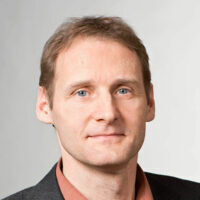
Prof. Dr.-Ing. Andreas Kremling
TU München, Fachgebiet für Systembiotechnologie, Boltzmannstr. 15 85748, Garching , Germany
Systems Biotechnology at TU Munich focuses on application of methods from systems biology to problems related to biotechnology. Systems biology is a new and interdisciplinary research field that combines mathematical/theoretical approaches with experimental methods. Besides an improvement of the overall biotechnological process the better understanding of the processes inside the cell is a major research topic. Escherichia coli, Pseudomonas putida and Halomonas elongata are chosen as model organisms since they show a high potential with respect to biotechnology.
A methodical focus of the division will be the development of meaningful mathematical models that first describe the behaviour of the cells and secondly support control and design of the system at hand. This requires models with predictive power integrating experimental data from various levels of the cellular organization with process data. For the experimental work, laboratory space is available with good equipment for chemical analysis and cultivation.
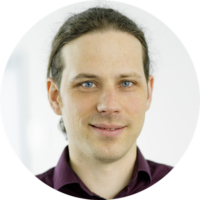
Dr. Gerald Lackner
Leibniz Institute for Natural Product Research and Infection Biology – Hans Knöll Institute (HKI), Jena, Germany
Our research topics are rare cofactors, natural product biosynthesis and therapeutic microbes. We investigate the physiological and biochemical roles of exotic cofactors in bacteria (e.g. coenzyme F420) to make them available for heterologous pathway expression and biotechnical applications. Furthermore, we develop microbial physicians, i.e. commensal bacteria that sense human pathogens and treat infections by heterologous production of bioactive natural products (e.g. antibiotics) in situ.
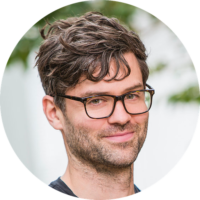
Prof. Dr. Hannes Link
Eberhard Karls Universität Tübingen, Exzellenzcluster CMFI, 72076 Tübingen, Germany
Metabolic networks respond rapidly to internal and external perturbations by changing fluxes, metabolite concentrations and enzyme levels. Our group is interested in the regulation of these responses and their functional relevance in microbes. Therefore, we investigate known metabolic control circuits, map novel regulatory interactions and engineer synthetic metabolic regulation. The ultimate goal is to improve metabolically engineered strains by enabling self-optimization of overproduction pathways for chemicals.
Our research group works on the interface of molecular systems biology and metabolic engineering to understand and manipulate the function of metabolic networks. Our main research areas can be categorized as: i) understanding the function of metabolic control circuits, ii) mapping regulatory interactions between metabolites and proteins, and iii) engineering of metabolic control circuits. An important concept in the group is to enforce changes in the metabolic network by genetic perturbations. For point mutations, deletions and insertions we use Cas9-based genome editing methods, and RNA-based methods for perturbations of gene expression. Inducible repression of metabolic genes, for example, allows us to investigate how cells compensate the resulting metabolic bottlenecks and infer regulators of this process. Time-resolved metabolite and proteome data helps us to distinguish the acute local responses from the more widespread global responses in the metabolic network. Therefore, we use our LC-MS based metabolomics system to measure fluxes and metabolite concentrations, as well as proteomics to probe enzyme expression. Integration of these multi-level data with metabolic models allows us to understand how regulatory mechanisms determine performance and robustness of the metabolic network. The overall goal of our research is to understand fundamental design principles of metabolic control circuits and transfer them to biotechnologically relevant systems. In the long-term we will create synthetic metabolic feedback in order to improve fitness of production strains and thereby maintain high productivity of bioprocesses.
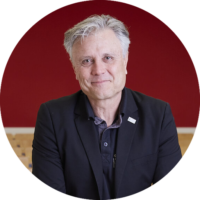
Prof. Dr. Bodo Laube
Neurophysiology and Neurosensory Systems, Centre for Synthetic Biology, TU Darmstadt, Schnittspahnstraße 3, B1|01 290, 64287 Darmstadt
We design selective detectors with new sensor and switching properties for the specific integration and calculation of extracellular signals in combination with downstream genetic control loops. By combining the different switching properties of ionotropic and metabotropic receptor domains with the ligand selectivity of substrate binding proteins (SBPs), we focus on a new modular strategy for the targeted coupling of selective sensor domains to specific intracellular signal cascades in the form of synthetic bio-sensors. SBPs are characterized by a broad but highly selective ligand spectrum (amino acids, peptides, saccharides, phosphonates, opines, metal ions, trigonal planar ions, vitamins, fatty acids and a multitude of complex organic compounds) with a high specificity and affinity down to the subnanomolar range. Therefore, SBPs are adapted and integrated to the molecular function of ionotropic and metabotropic receptor signaling by rational modification. This range of robust biosensors for insertion into synthetic hybrid circuits enables a new quality of integration and processing of sensory signals at the cellular level. Furthermore, the interaction with DNA domains is investigated by coupling SBPs to specific DNA binding proteins in order to enable the conceptual control of cellular processes on the transcriptional level and a functional extension of rationally designed biological switches. Finally, our findings are transferred to the understanding of bi-directional neuronal plasticity mechanisms, e.g. in the context of learning and memory processes, which require the processing of various extracellular information for the specific controlled regulation of de novo gene expression in the cell nucleus.
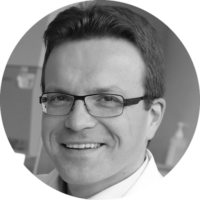
Prof. Dr. Jan Marienhagen
Forschungszentrum Jülich GmbH, Institut für Bio- und Geowissenschaften,IBG-1: Biotechnologie,52425 Jülich, , Germany
Aim of the research of the “Synthetic Cell Factories” – group at the Institute of Bio- and Geosciences, IBG-1: Biotechnology (Research Center Jülich, the Helmholtz Association) is the extension of metabolic capabilities of microorganisms for applied purposes by using novel approaches of synthetic biology. Resulting synthetic cell factories should be able to efficiently utilize biomass-derived substrate for synthesizing valuable products: such as (plant) natural products, fine chemicals or pharmaceutical building blocks. In addition, we develop novel tools for the synthetic biologist, which allow for the construction of synthetic operons, the modification of microbial genomes, and high-throughput screening of metabolite-producing bacteria at the single-cell level using biosensors.

Dr. Sylvestre Marillonnet
Leibniz Institute of Plant Biochemistry, Weinberg 3, 06120 Halle (Saale), Germany
In my group, we are interested in developing tools for assembly of multigene constructs and optimization of gene expression. We have previously developed a DNA assembly method (Golden gate cloning) and a modular cloning system (MoClo) that allows users to assemble multigene constructs from library of standard biological parts using a series of one-pot assembly reactions. This system also allows the generation of libraries of multigene construct that vary, for example, in the regulatory sequences of the various genes of the constructs, which can be useful for optimization of a biosynthetic pathway. We are also interested in reconstitution biosynthetic pathways for high level production of metabolites of interest in industrial organisms such as plants, yeasts and bacteria.
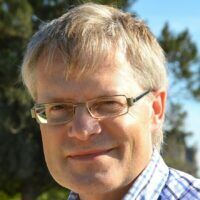
Prof. Dr. Bernd Mueller-Roeber
University or Potsdam, Institute of Biochemistry and Biology, Department of Molecular Biology, Karl-Liebknecht-Str. 24/25, 14476 Potsdam, Germany
The synthetic biology division of our lab is focused on tool development for various host organisms. This includes multi-gene cloning technologies, light controlled gene expression and recombination systems, synthetic transcription factors, as well as genome engineering approaches. Our tools can be combined in order to tackle challenging projects that require heavily reprogrammed host cells, e.g. the production of high value secondary metabolites.
So far, we relied on Saccharomyces cerevisiae as the host organism for synthetic biology approaches, but are also in the process of addressing other hosts like higher plants and the upcoming liverwort model Marchantia polymorpha.
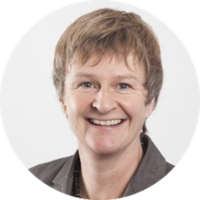
Prof. Dr. Kerstin Otte
University of Applied Sciences, Biberach, Germany
Therapeutic proteins are highly complex biological drugs which are mainly produced by eukaryotic cell lines. Optimized and tailored mammalian production cell lines are needed for the production of safe and efficient molecules with high quality. In contrast to classical cell engineering strategies, our laboratory focuses on the development of micoRNAs (miRNAs) as versatile tools to genetically optimize mammalian production cells. Our comprehensive miRNA research led to the generation of a ‘miRNA target catalog’ providing an avenue for next-generation cell engineering.
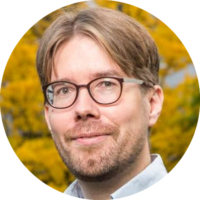
Prof. Dr. Lennart Randau
Max-Planck-Institut für terrestrische Mikrobiologie, 35043 Marburg, Germany
Lennart Randau is head of the Max Planck Research Group “Prokaryotic Small RNA Biology”. Our research focuses on identifying novel functions of small non-coding RNA molecules in archaea and bacteria. Unique fragmented, circular and double-stranded RNA families have been identified. We characterize minimal type I CRISPR-Cas systems and utilize engineered CRISPR-Cas variants to specifically target and protect RNA molecules in bacterial cells. In addition, we investigate the applicability of archaeal kink-turn elements as synthetic translational regulators. Our group applies and combines biochemical (RNA-seq), microbiological and synthetic biology approaches.
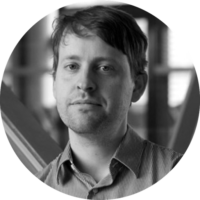
Dr. Tom Robinson
Max Planck Institute of Colloids and Interfaces, Potsdam-Golm, Germany
Understanding the biological cell at its minimal complexity can unravel the role of specific components in existing complex cellular systems. To this end, the “bottom-up” approach of synthetic biology aims to build-up simple biological cell analogues from individual chemical building blocks. The final aim being the creation of a complex but controllable system which reflects natural cellular processes. Our group uses two main tools: the first is biomimetic giant lipid vesicles which we use as artificial cells or proto-cells, and the second is microfluidic technology which provides a platform to create and to handling lipid vesicles. Currently, our research is focused on multi-compartment eukaryotic cell mimicking systems and biomembrane fusion.
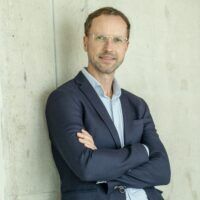
Prof. Dr. Gil Westmeyer
Department of Bioscience, TUM School of Natural Sciences & TUM School of Medicine, Institute of Synthetic Biomedicine, Helmholtz Munich
Our work focuses on mammalian cell engineering of next-generation molecular sensors, actuators, and genetic functions for molecular imaging and remote spatiotemporal control of cellular processes across multiple scales.
We apply these biosynthetic devices to establish bidirectional communication with cellular circuits in organoids and preclinical model organisms to reverse-engineer cellular network function and aid future imaging-controlled regenerative and cell therapies.
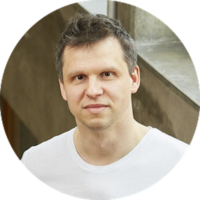
Prof. Dr. Viktor Stein
Protein Engineering, Centre for Synthetic Biology, TU Darmstadt; Schnittspahnstr. 10, B2|05, 64287 Darmstadt
Our primary research interests focus on the construction of artificial sensory and transport systems. To this end, our lab (i) develops foundational technologies for protein engineering to facilitate the construction of proteins with tailored properties and functions, (ii) dissects the structure-function relationships underlying artificially engineered proteins, (iii) maps their evolutionary transitions and trajectories, and (iv) develops molecular tools for different applications in biotechnology, biomedicine and basic research. We are tackling these problems using a combination of molecular genetics, protein biochemistry and high-resolution biophysical methods including fluorescence microscopy, electrophysiology and microfluidics.
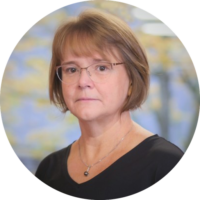
Prof. Dr. Beatrix Süß
Synthetic Genetic Circuits, Technische Universität Darmstadt, Fachbereich Biologie, B2|03 Schnittspahnstraße 10, 64287 Darmstadt
In our group we work on creating novel synthetic RNA aptamers against small molecule targets. We are engineering them to be used as designer riboswitches for the application in a range of living organisms, from Escherichia coli to human cells. These versatile tools are used to create complex genetic circuits to regulate gene expression. Expanding the toolbox of synthetic biology, we aim not only to generate new tools, but also to further the understanding of existing aptamers and riboswitches by studying their RNA biochemistry.
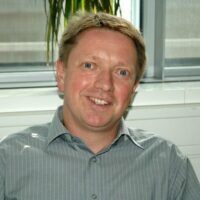
Prof. Dr.-Ing. Ralf Takors
Universität Stuttgart, Institut für Bioverfahrenstechnik, Allmandring 31, 70569 Stuttgart, Germany
The Institute of Biochemical Engineering (IBVT) focuses on the development of novel bioprocesses making intensive use of synthetic and systems biology. Cell-free protein synthesis represents one core activity aiming at the maximization of volumetric productivities based on data-driven models. Industrially attractive strains such as Escherichia coli, Corynebacterium glutamicum and Pseudomonas putida are studied for engineering their fundamental kinetic properties. For instance , key regulatory programs are modulated, genome reduction is performed or novel orthogonal regulatory circuits are implemented – with the goal to create production platforms that are best prepared for large-scale application.
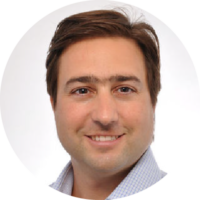
Prof. Dr. Matias Zurbriggen
Synthetische Biologie, Heinrich-Heine-Universität, 40225 Düsseldorf, Germany
Our research perspective is to apply synthetic biology approaches to control and understand eukaryotic signalling processes and regulatory networks in a quantitative and spatiotemporally resolved manner. To this aim we follow an interdisciplinary approach at the interface of engineering and life sciences, focusing on plant and mammalian synthetic signalling networks and metabolic pathways, biological sensors, and chemical and optical switches.
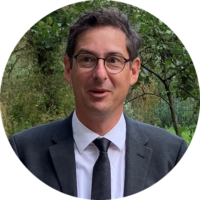
Prof. Dr. Bastian Blombach
Technical University of Munich, Microbial Biotechnology, Uferstraße 53, 94315 Straubing, Germany
Our group focuses on the development of microbial production processes for chemicals and fuels from renewable resources. To achieve this goal, we apply the methodology of metabolic engineering, systems biology and synthetic biology to exploit the potential of established and novel microbial systems for industrial biotechnology. The development of a quantitative and systemic understanding of the metabolic performance of microbial platforms such as the heterotrophic Vibrio natriegens and Corynebacterium glutamicum as well as aerobic carboxydotrophs such as Hydrogenophaga pseudoflava is essential in this context.

Prof. Dr. Jürgen Lassak
Ludwig-Maximilians-Universität München, Biocenter Großhaderner Str. 2-4 D-82152 Planegg/Martinsried Germany
In my research group, we deal with various aspects of non-natural amino acids on protein function. On the one hand we adapt the translational apparatus to expand the genetic code for the reproduction of non-enzymatic post-translational modifications with physiological and biomedical relevance. We are also working on protein backbone modification employing rationally designed novel tRNA synthetases. On the other hand, we are screening bacterial proteomes for novel glycosyltransferases that can be biotechnologically used to reproduce eukaryotic glycosylation patterns in bacteria for the production of biologicals in prokaryotic expression systems.
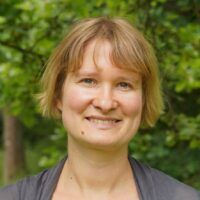
Dr. Henrike Niederholtmeyer
TUM Campus Straubing for Biotechnology and Sustainability, Schulgasse 16, 94315 Straubing
The Niederholtmeyer lab constructs artificial, life-like systems from simple biochemical and synthetic building blocks. Our research is motivated by the remarkable precision with which living organisms control when and where reactions happen. What are the characteristics of the molecular interactions that drive organization in time and in space? Can we learn from biology to design new life-like materials? How much organization is necessary to integrate multiple complex biochemical functions? To answer these questions, we build and study artificial, biochemically simplified systems. We take a creative approach to engineering biology-inspired reaction systems using a combination of biological and synthetic components. As tools, we use and develop microfluidic devices, hybrid materials, and cell-free reaction systems.
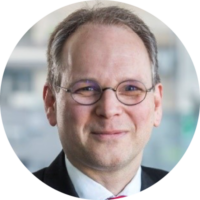
Prof. Dr. Christoph Wittmann
Institut für Systembiotechnologie, Universität des Saarlandes, Campus A1 5, 66123 Saarbrücken
Biotechnology has the potential to revolutionize industrial production – the team headed by Prof. Dr. Christoph Wittmann works in the heart of this exciting development. We design and develop cell factories to tailor the synthesis of valuable products – high-end healthcare ingredients, large volume platform chemicals, and smart bio-materials. For this we optimize metabolic pathways and their control in microorganisms and equip them even with new abilities – our leading approaches of systems metabolic engineering and synthetic biology make this possible. Furthermore, we use our “synthetic bugs” to develop innovative, environmentally friendly value chains. The synthesis of the future uses renewable raw materials – we too.
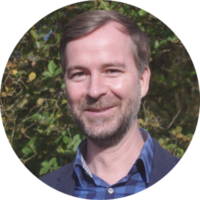
Prof. Dr. Torsten Waldminghaus
Molecular Microbiology, Centre for Synthetic Biology, TU Darmstadt; Schnittspahnstr. 12, B2/05, 207, 64287 Darmstadt
Genetic information is stored within each living cell in the form of chromosomes. The mechanisms involved in the maintenance of chromosomes have long been studied, but many questions remain unanswered. We are applying new DNA assembly technologies to better understand the biology of natural chromosomes by constructing simplified prototypes of synthetic chromosomes. This learning-by-building approach will help to understand what actually makes a chromosome a chromosome. In addition, we apply our expertise on replication systems to design smart plasmids that are for example lacking the need for antibiotic selection. This way we help to reduce the use of antibiotics within plasmid production for gene therapy or vaccine production and as a consequence contribute to a reduction of resistance development in the environment.
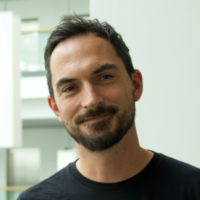
Dr. Steffen Lindner
Biochemistry and Systemsbiology of Metabolism, Charité - University Medicine Berlin; Charitéplatz 1, 10117 Berlin, Germany
We focus on redesigning microbial metabolism to develop biological solutions that support a sustainable, circular economy. Our approach centers on creating platform strains to optimize sustainable industrial processes. In these growth coupled metabolic designs, cell growth is achieved only when a specific metabolic pathway or enzyme complements for an engineered auxotrophy. To accomplish this, we modularize metabolism around key cellular components. Using these tools, we are advancing the following key areas:
Sustainable carbon source utilization: We engineer metabolic pathways that enable the use of sustainable carbon sources for microbial growth and bioproduction.
Growth-coupled bioproduction: Our team develops microbial cell factories that tightly link growth to the stoichiometric production of valuable chemicals or biofuels. This growth-coupling strategy establishes an obligate metabolic dependency between growth and product formation, ensuring stable and high-yield production outputs.
In vivo enzyme engineering: We utilize microbial sensor strains to link enzymatic functions directly to the organism’s growth, ensuring that improvements in the kinetic parameters of the target enzyme result in enhanced growth. This strategy allows the seamless integration of adaptive evolution, hypermutation techniques, and high throughput screening of large enzyme libraries, significantly simplifying and accelerating enzyme activity optimization.
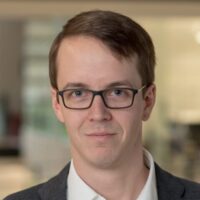
Dr. Daniel Schindler
Max-Planck-Institute für terrestrische Mikrobiologie, 35043 Marburg, Germany
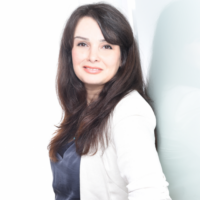
Dr. Gita Naseri
Emmy-Noether Research Group Leader, Humboldt-Universität zu Berlin, Philippstr. 13, 10115 Berlin; Max Planck Unit for the Science of Pathogens, Charitéplatz 1, 10117 Berlin
The Naseri Lab is dedicated to unlocking the transformative potential of synthetic biology to tackle some of the most pressing challenges of our time. We focus on unraveling cellular functions and reprogramming them for specific applications, using synthetic biology to engineer precise, impactful solutions. Through pioneering research, we have developed specialized synthetic biology tools and methods for pathway design, including synthetic promoters, biosensors, genome editing tools, and combinatorial optimization strategies. By engineering microorganisms using our tools to serve in applications ranging from sustainable production to advanced therapeutics, we strive to expand the horizons of what biology can achieve with a steadfast vision of a resilient and sustainable future.
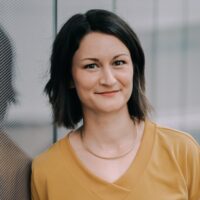
Dr. Lena Hochrein
BMBF-junior research group TAILOR, University of Potsdam, Institute of Biochemistry and Biology, Karl-Liebknecht-Str. 24/25, 14476 Potsdam, Germany
Our group develops synthetic biology tools to engineer microbial hosts as efficient cell
factories, enabling sustainable bioproduction and supporting the transition to a circular
bioeconomy. We focus on in vivo promoter engineering, inducible gene expression, and
optogenetic switches—allowing precise and dynamic regulation over diverse protein
functions inside the cell. By integrating these tools into microbial strains, we create ‘ready-
to-use’ host strains as platform technologies that simplify gene insertion and biosynthetic
pathway optimization. This enables the efficient production of a wide range of valuable
compounds from diverse carbon sources.
To broaden the applicability of our tools beyond model organisms, we establish robust
workflows in baker’s yeast that integrate combinatorial DNA assembly, genome editing, lab
automation for high-throughput screening, and computational modeling. Once optimized
and validated, these workflows are transferred to industrially relevant, non-conventional
yeasts—organisms with unique metabolic capabilities that are challenging to engineer. In
this way, our group delivers flexible, scalable solutions to advance bio-based production and
reduce dependence on fossil resources.
